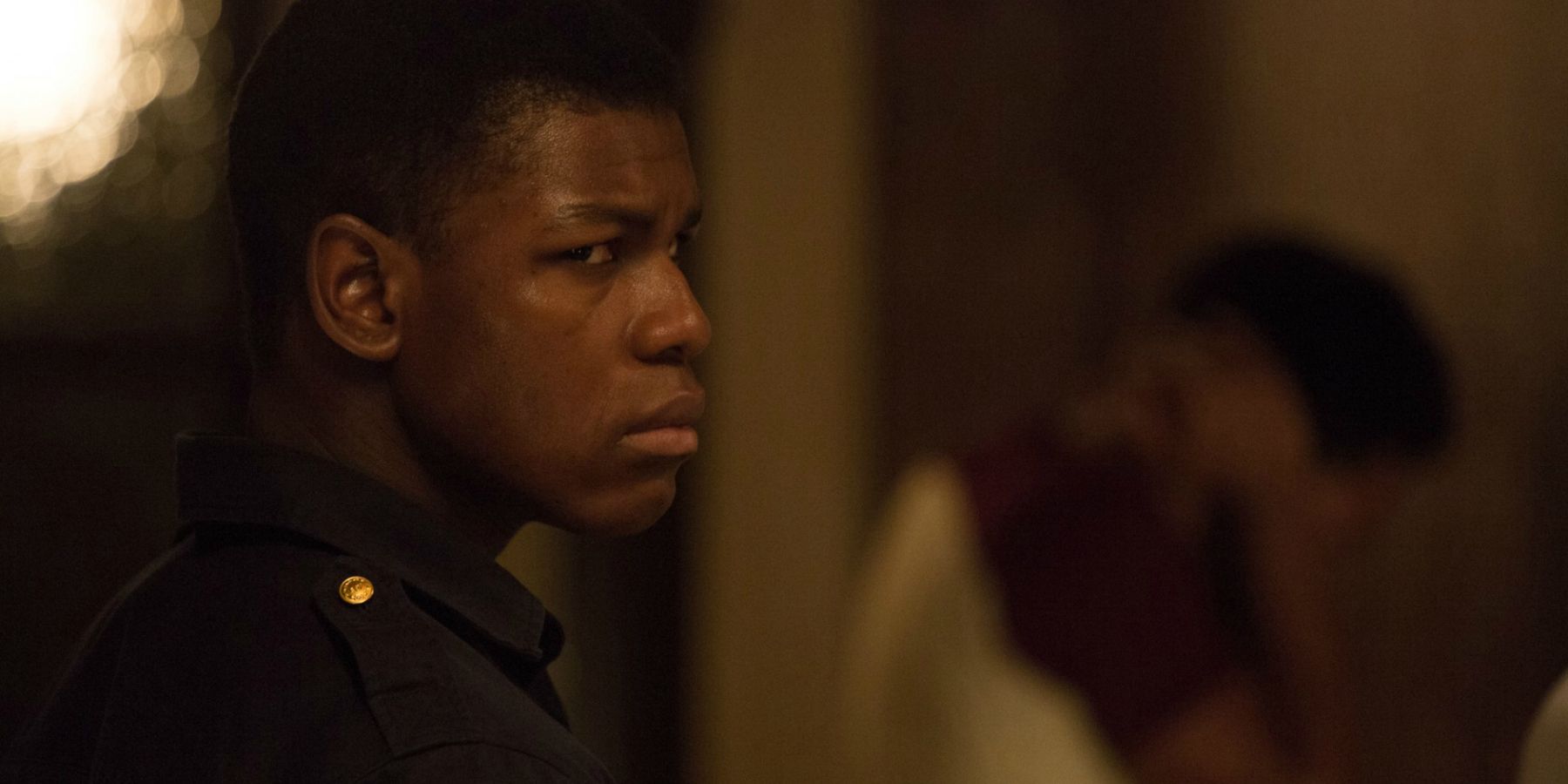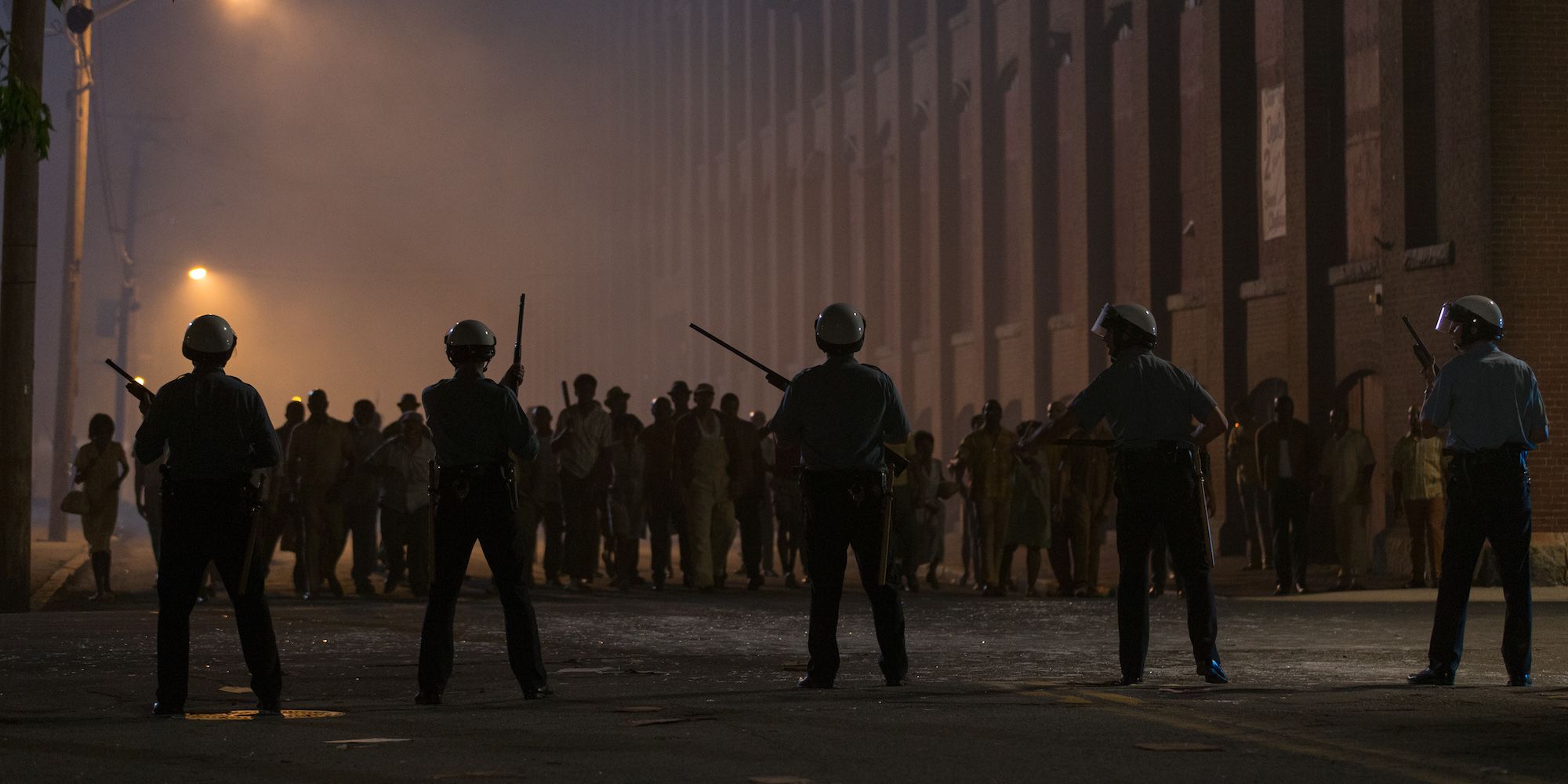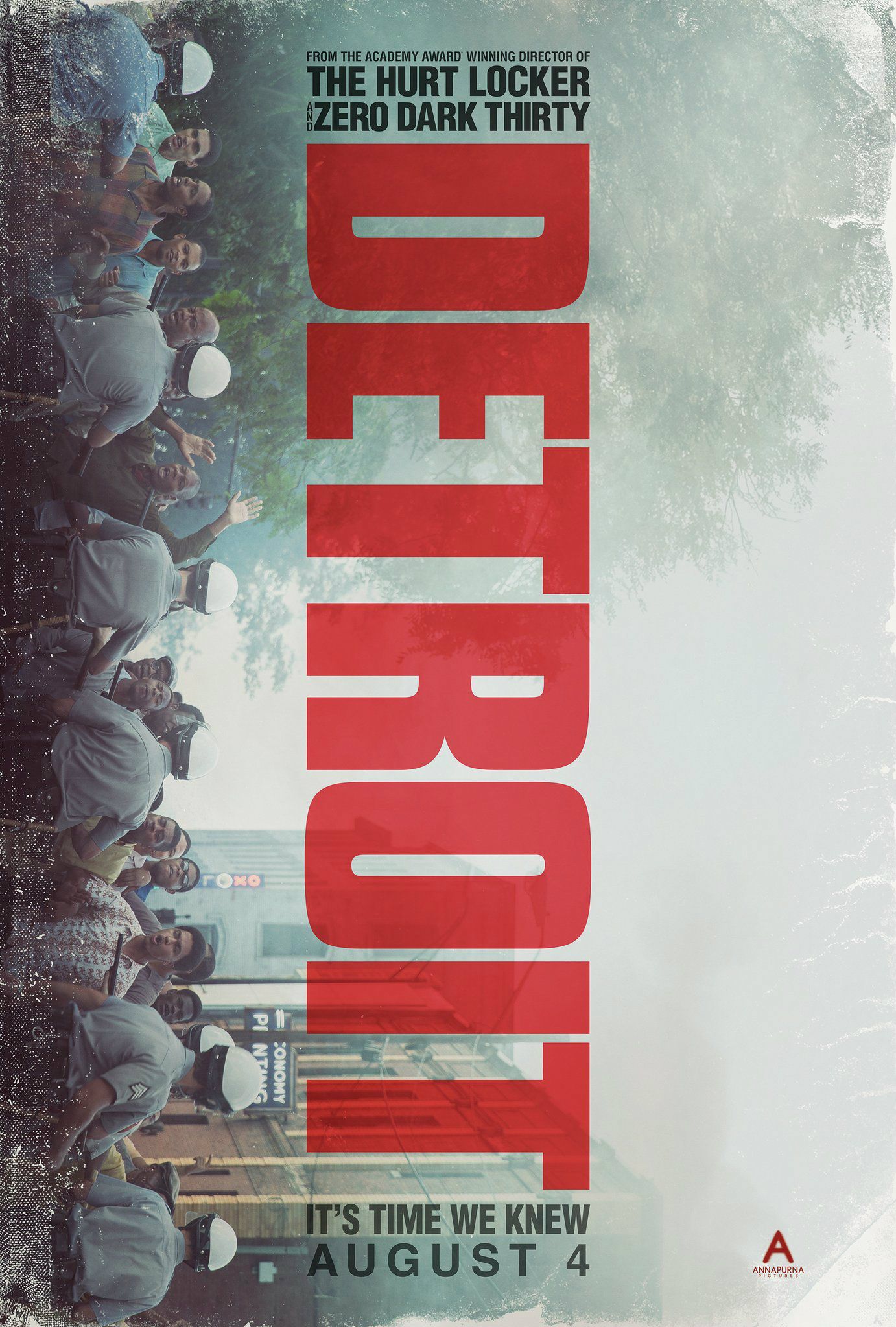Detroit star John Boyega talks about the film's intense tone and portraying his real world character, Melvin Dismukes. Boyega first got on the radar of science fiction fans when he starred in Joe Cornish's 2011 action film, Attack the Block, but his star rose exponentially when he joined J.J. Abram's Star Wars: Episode VII - The Force Awakens. Reigniting the Star Wars franchise after a decade of lying dormant, The Force Awakens was a massive success for Disney and Lucasfilm, making Boyega one of Hollywood's top rising stars.
One of his first post-Star Wars projects - in addition to Steven S. DeKnight's Pacific Rim: Uprising - is Detroit. Directed by Kathryn Bigelow, who earned an Oscar for helming The Hurt Locker and was nominated for Zero Dark Thirty, Detroit follows the events of the 1967 riot in the titular city. Though the movie covers the riots in broad strokes, it particularly highlights the events at the Algiers Motel, to which Boyega's character, Melvin Dismukes, was a witness.
Related: Final Detroit Trailer
During the recent press junket for Detroit, Screen Rant had a chance to sit down with Boyega and discuss his upcoming drama film, the opportunity of working with Bigelow, and how important the project is to him on a personal level.
First off, congratulations on the movie, it’s great.
John Boyega: Thank you, thank you so much. I appreciate it.
What drew you to the project?
Boyega: I was at a point where I was reading several scripts and wanted something with meaning a movie that made a comment on what we’re going through today and something historic. I just wanted to be involved with a great director, great cast and was looking for a project that paid homage and paid respect to the stuff that I’ve been doing before. A nice balance of versatility and variety, and Detroit just represented that.
And what was the audition process like?
Boyega: It was very quick. Same day audition, same day I found out I got the part. I flew out to New York and then I auditioned in front of Kathryn, but it felt more like a workshop. There was improv involved and that evening I got the full script and I was told, ‘Yeah, you got the part.’ So I started getting ready to prep for this, flew back to London and started prepping.
What kind of research and prep did you do for the movie?
Boyega: Well there’s the general research. Fortunately, this event is highly documented, so we were given the best documents to go along with paper research. But for me, I was able to speak to the man I actually play, Melvin Dismukes. We jumped on a conference call with Kathryn and we had a long conversation about how he felt, the kind of man that he is, the event. Several different things about him, little nuggets that were very, very interesting that I was able to bring into the movie. And it made things easier on him - him [being] involved - it made it a much more smooth process for me.
Was there anything in particular that you can remember that influenced your performance?
Boyega: The fact that he’s an introvert influenced everything, knowing that he’s consistently dealing with reactions and life on an internal level for me was something that I noticed, and something that he slightly mentioned. And from the stories that he would tell from his childhood or the stories that he would tell about what was going on in present day, you could tell that this is a man that deals with things [internally] and that influenced - obviously my performance was very quiet, very solemn and quite intense.
Yeah, he doesn’t have a lot of lines, so what was it like going into that, how did you prep for it - were there any exercises that you did?
Boyega: No need for any exercises, for me there’s a separation between narrative and character that you have to establish before you approach a scene. Your character is the basis of who the person is, and the circumstance just happens to the person, and based on what you’ve established, that will judge your reaction and I knew that each thing that Melvin went through - until directed otherwise by Kathryn - I would handle in the eyes and through the face. It just requires you to keep a level of intensity on set, and we all did and it was natural because some of the things I was like, ‘Damn.’ Some of the things I was naturally just like, ‘That’s not right.’ So it wasn’t necessarily hard to reflect that.
I imagine in your career you’ve face immense pressure joining the Star Wars franchise, obviously, how is it a different kind of pressure to portray someone who existed?
Boyega: I don’t think any of this is pressure per say because Star Wars, we’re backed by an amazing team and you feel like we’re all in this together, and I had that same feeling with this. It’s a collaborative effort, moviemaking, it can’t exist with just one person. So you’re able to share the load. You get to all walk into the fire as a team, but you do feel an immense sense of responsibility, but at the same time we all felt that so it made the efforts much more positive.
So this is a much smaller project than Star Wars, but also Pacific Rim, how was the experience on set different?
Boyega: This was huge to me, to me this is the biggest thing I’ve ever done, so far. It’s the biggest movie of my career so far, Detroit, because it’s a stretch of my craft as an actor. It’s a chance that you don’t have - you’re not babied anymore by a machine. It’s raw performance, it’s art. And second of all, I get to work with a phenomenal director who is obviously known for doing amazing movies but we’re tackling a real issue that we’re still speaking about today. So the importance of this movie is far beyond anything I’ve ever done. So, being on set, actually my emotions were more catered to this experience being just so different to Star Wars - and big in its own way.
Next: Why John Boyega is the Next Big Hollywood A-Lister
From the Academy Award winning director of The Hurt Locker and Zero Dark Thirty, Detroit tells the gripping story of one of the darkest moments during the civil unrest that rocked Detroit in the summer of ‘67.



